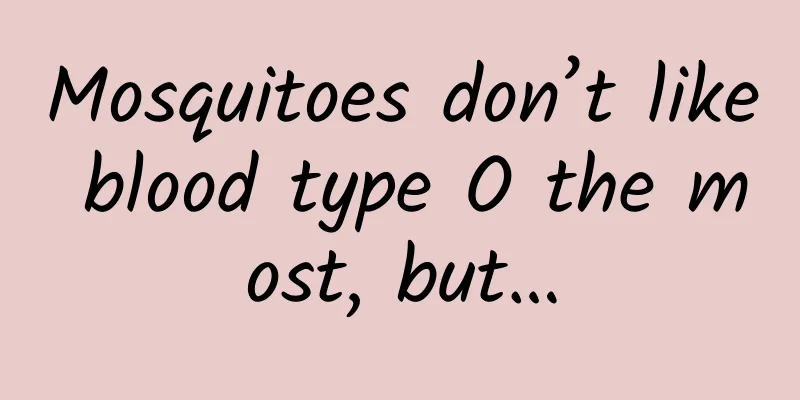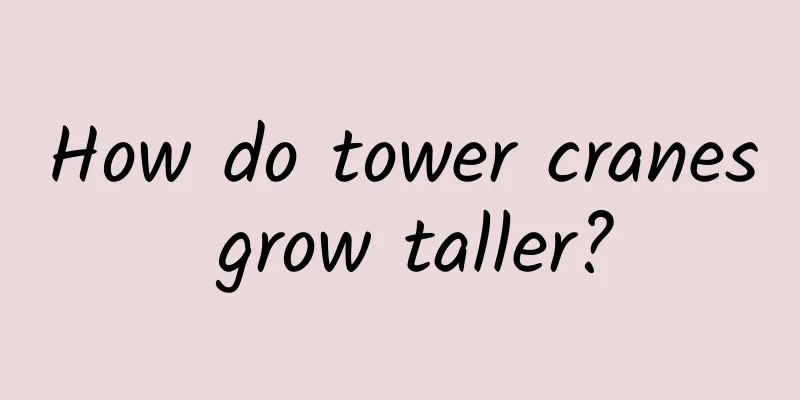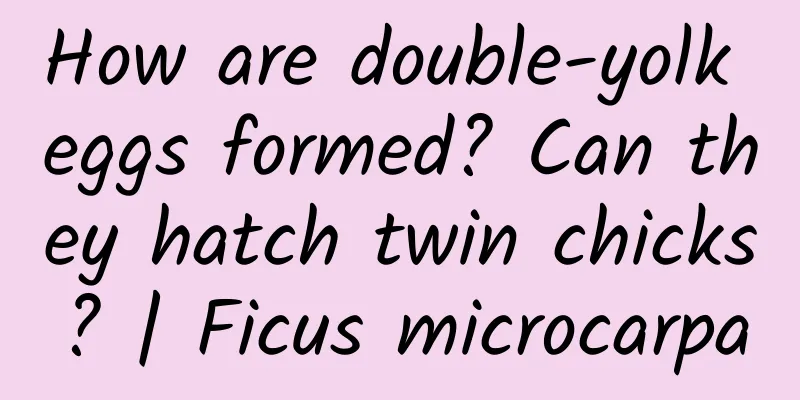If you are over 30, you may find that spinach has changed | Expo Daily

|
Your best "insider" in the scientific community is here! "Expo Daily" reports interesting scientific content of the day, the latest scientific research progress, mind-blowing scientific discoveries, and scientific observations of hot events. You can subscribe to "Expo Daily" separately - click the #Expo Daily topic in the lower left corner and click the "Subscribe Topic" button on the right. Is the spinach you ate as a child different from the one you eat now? The spinach we ate when we were children is very different from the one we eat today - the spinach stalks we ate when we were children were longer and the leaves were more pointed, basically a triangle; the mainstream spinach now is only half the length of the original one, and the leaves are round-headed. These are two varieties, and some scholars have suggested that they be two variants. The former has thorny seeds and is called "thorny spinach" or "pointed leaf spinach"; the latter is called "round spinach" or "round leaf spinach". The former is relatively old, and this type was introduced during the Tang Dynasty. It has red roots, thin leaves with long stems, and looks like arrowheads. It tastes a bit crispy and sweet. This is what we ate when we were young. Round-leaf spinach is a variety introduced later. It is large in size, meaty in taste, high in yield and heat-resistant, and is becoming more and more common in the market. Some of you may find that the round-leaf spinach in the supermarket is not as big as the pointed-leaf spinach. That’s because the grown round-leaf spinach tastes astringent and woody, and many of them are picked and sold when they are “underage”. Now they are often called “spinach seedlings” (pointed-leaf spinach is also sold this way). Generally, the younger the round-leaf spinach, the more expensive it is. Image source: veer gallery my country's superconducting quantum computer Zu Chongzhi No. 3 is here According to the University of Science and Technology of China, the #Zu Chongzhi No. 3# quantum computer with 105 quantum bits developed by the team of Academician Pan Jianwei of the University of Science and Technology of China and others released its relevant results online on arXiv on December 17. According to reports, the number of quantum bits in the Zu Chongzhi III has increased to 105 compared to the 66 quantum bits in the Zu Chongzhi II, significantly improving its computing power. Its processor consists of two sapphire chips integrated using flip-chip technology. Experimental data show that the performance of "Zu Chongzhi No. 3" exceeds that of Google's latest progress published in the journal "Nature" in October 2024 by 6 orders of magnitude - the 72-bit "Platanus" processor, achieving the strongest superiority of superconducting quantum computing at present. "Quantum computing superiority" means that quantum computers need to demonstrate the ability to surpass classical computers in solving specific problems, thereby solving computing tasks that even supercomputers cannot solve in a short period of time. Quantum computing has become one of the focuses of the global competition for comprehensive national strength. In recent years, the planning and layout of major scientific and technological countries in the world have continued to strengthen in the field of quantum computing, and more than 30 countries have carried out planning and layout in the field of quantum information with quantum computing as the focus. Why do you believe in horoscopes? I saw the topic #This Week's Lucky Zodiac Signs# was trending on Weibo. Why do so many people believe in zodiac signs? Do you also think that any of them are very similar to your personality? Here we have to mention the Barnum effect, which means that people often think that a general and general personality description accurately reveals their own characteristics. When people use some common, vague and broad adjectives to describe a person, people tend to accept these descriptions easily and think that the description is about themselves. There are other psychological findings about why people are superstitious about horoscopes: for example, the language used by horoscopes to describe personality traits avoids using bad words. Even if there are any, they are only mentioned briefly. Most of the descriptive words are positive and good. When people hear good words, their self-esteem will feel satisfied and they will accept the comment about themselves. However, the constellations themselves have no special formation standards and meanings. In ancient times, people combined the brightest stars in the sky into 12 constellations in order to use stars for "navigation" more conveniently and quickly, so they made it easier to find them. If we only regard "horoscope culture" as a pastime after dinner, it doesn't matter to argue and judge whether it is scientific or not. But when blind belief in "horoscopes" hinders people's choices and judgments in daily life, it is particularly important to popularize the science of horoscopes. You can believe in it but don't be superstitious. There are tricks to improve memory, and exercise is important! A new study led by researchers at University College London in the UK shows that after physical exercise, the brain will gain a short-term memory improvement that lasts throughout the day. The new study was published in the International Journal of Behavioral Nutrition and Physical Activity. The study found that people aged 50-83 who engaged in moderate to vigorous physical activity on one day performed better on a memory test the next day. Sitting for less than three hours and sleeping for six hours also had a similar memory-boosting effect. The research team recruited 76 volunteers for testing and found that exercise increases blood flow, of course, blood flow to the brain. Exercise also stimulates the release of neurotransmitters such as norepinephrine and dopamine, which helps a range of cognitive functions. A previous study published in 2016 by another research team also found that within 48 hours after a high-intensity interval training cycle, the synchronization of hippocampal activity would be enhanced, indicating enhanced hippocampal function and improved memory. In general, the more sleep you get, the better your episodic memory, working memory and psychomotor speed (a measure of how quickly a person perceives and reacts to their environment). Conversely, being sedentary for longer than usual was associated with worse working memory the next day. Image source: pixabay Why are clothes made of cotton warm? During the Song and Yuan dynasties, cotton was planted on a large scale in my country, and various types of cotton clothing began to appear. Cotton has a loose fiber structure, and a large amount of air can be captured between the fibers. This air forms a natural insulation layer between the fibers, effectively preventing the loss of body heat. The content is compiled from China Science Popularization Expo Weibo, Museum, Science and Technology Daily, Science Academy, CCTV Records This article was first published on China Science Expo (kepubolan). Please indicate the source of the public account for reprinting |
>>: The L size has been changed to the S size again! Why do woolen sweaters always shrink?
Recommend
Waymo, the world's leading autonomous driving company under Google, has entered China. Can Baidu win again?
Amid the endless stream of news events, the news ...
Analysis of domestic airport advertising business model
The essence of advertising is to inform a specifi...
Apple cracks down on ranking manipulation: Taiwan removes apps with built-in points wall
According to reliable sources, Apple Taiwan has r...
He only has a junior high school education, but he became a teacher at Tsinghua University
On the road of scientific exploration, countless ...
Data analysis from the perspective of product operation
What is Data Analytics? Data analysis is a goal, ...
Can this much-hyped supplement really make your hair darker?
gossip “Taking tyrosine supplements can really ma...
Why can’t the mountains on Earth exceed 10,000 meters?
The highest mountain on earth is the main peak of...
Are "999", "990" and "925" the same? What kind of silver are they?
Review expert: Gan Qiang, lecturer at Beijing Ins...
Resource station profiteering, long-term and stable money-making project
We all know that traffic is the essence of all bu...
Why is it so difficult to convince the older generation? There is a term in psychology: the backfire effect
Have you ever tried to persuade someone, but foun...
Everyone is talking about communities, how do we build them? How to operate a community? How to monetize the community?
Products must be innovative, solve problems and r...
Behind the success of pair programming
Let’s explore and analyze the characteristics and...
Radar satellites: All-weather observations “show their prowess”
Recently, the American weather data company annou...
Douyin Taotao Youhua teacher picture and text character story music task practical short video operation course
Douyin Taotao Youhua teacher picture and text cha...









